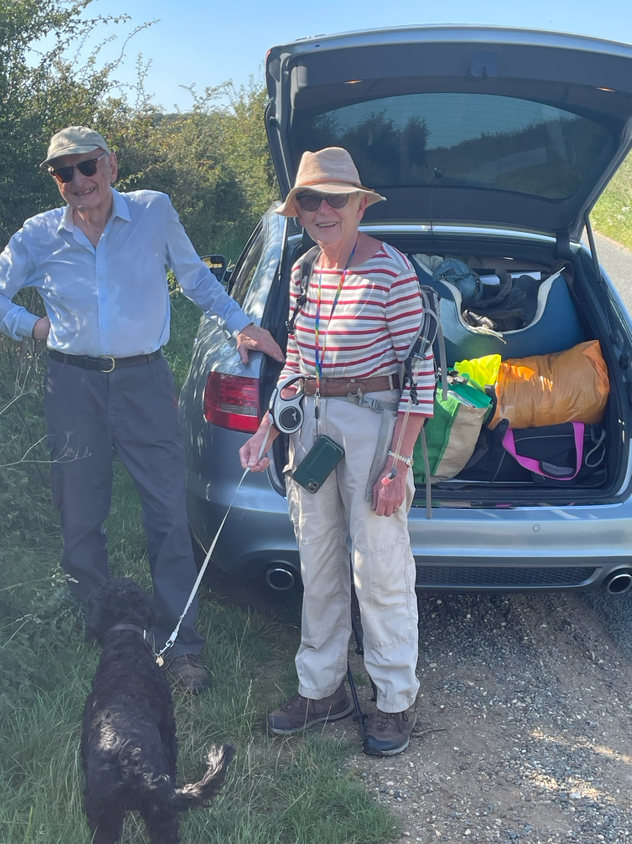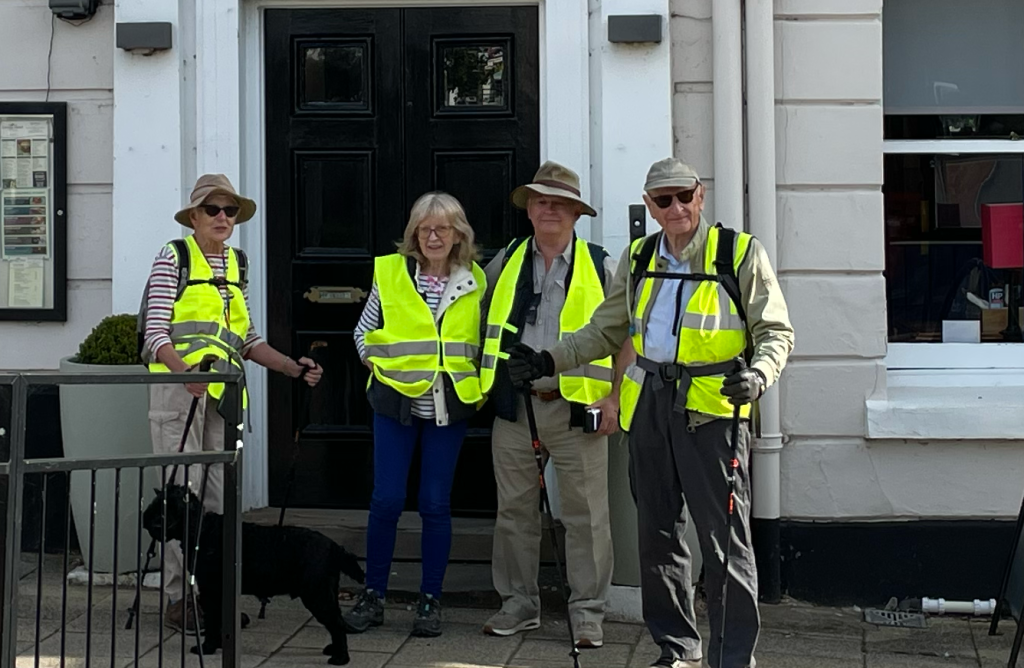After so many years, Jane and I are experts in our style of walking. We know all there is to know, and I say this without conceit. After nigh on 3000 miles, we just know, and if we didn’t by this time, we would be really very stupid! First, we know the limits of how far we can safely travel in a day’s walk. It may sound obvious, but it really isn’t: we know how far to walk in an hour and when to stop and drink (often!). How to handle traffic (with great care), what sort of pubs to avoid, which to patronise, how to use our excellent “LEKI” sticks. What socks to wear, the best boots and so on.
It all comes naturally now. But everything has a season, and we are well aware that, in the end, everything – the good and not-so-good, as well as the ghastly – passes. We are aware that at our respective ages, we are outliers and supremely fortunate we remain fit enough to be able to walk such distances as we do, day after day
or at all. It would be really very foolish to take all this for granted. None of us, not even our wonderful ZANE supporters – will get out of this life alive!
Praise the Lord! Praise His Holy name.
Keep Buggering On
On 30 April 2020, Sir Keir Starmer was secretly filmed by a student. He was in Durham Miners’ Hall with May Foy MP and Labour’s deputy leader, Angela Rayner, eating takeaway curry and drinking beer.
In a BBC interview with Sophie Raworth, Starmer was repeatedly asked about “Beergate”. In a rictus of anxiety, he denied there could be any comparison whatsoever between this incident and Boris’ “Partygate”.
For the record, I’m sure Starmer was telling the truth. But that’s not the point.
On My Mother’s Life!
Soon, other people starting sharing evidence of Downing Street booze-ups and helped to bring down a prime minister. Smart phones have changed the world and that’s the thing.
Fifty years ago, even 20, voters would never have known about Starmer’s curry and beer, nor would they have known for sure about Partygate. Vague rumours may have circulated, but in those innocent, smartphone-free days, they were often limited to games of “He said, she said” with the truth a case of, “Who do you believe?” Secrets were usually exploited by breaches of faith, and they went like this:
“I’m going to tell you a hugely important secret… but, please, please, promise you’ll never tell a soul!”
“Oooh, of course… tell me. I’ll not tell anyone. I promise on my mother’s life!”
Of course, by the end of a week most people would have forgotten any mention of their mother and exactly how very secret the secret was. By the end of two weeks, they’d have forgotten the secret was a secret; and by week three, they wouldn’t even be able to recall who spilled the secret in the first place!
But that was then and this is now, for the world’s a changed place. Today cameras and social media rule, and nothing in public life remains behind closed doors for long. Politicians realise that everything they do and everything they say – all their mistakes, outbursts of anger, follies, boozing, betrayals, hands on the knee and other infidelities – may be recorded on camera, or by other means, and paraded to a world that’s gagging for scandal.
Now, most people (except ZANE supporters, of course) have probably done something at some time or other which brings a degree of shame. Just imagine if your worst disgrace had been recorded and was about to be broadcast on social media in the most hostile way imaginable?
Sozzled Saviour
Peer back in time to 1943 when Churchill was our wartime prime minister. He ended up as a saviour. But would he have survived if the loans from chums, his incontinent casino gambling, his egregious tax-avoidance, his drinking and his serious ill temper towards staff had been recorded on camera and paraded on social media? Would he have survived when, for example, everyone was on strict rations and pictures of him, a bit sozzled and singing music hall ditties while scoffing smoked salmon, grouse and rich puddings – all washed down with vast quantities of champagne and claret – had been shared with the nation?
Of, course, in those dark days there were no smartphones to cause mayhem and it was, thankfully, a different world. So, today – thanks to Churchill – we can speak in English, not German, and we can KBO (“keep buggering on”, which was a favourite sign-off of his) in freedom.
The late Julian Critchley, former MP for Aldershot, was right when he said that the only thing people in public life can safely do is to suck boiled sweets.
And not even that’s safe nowadays.


